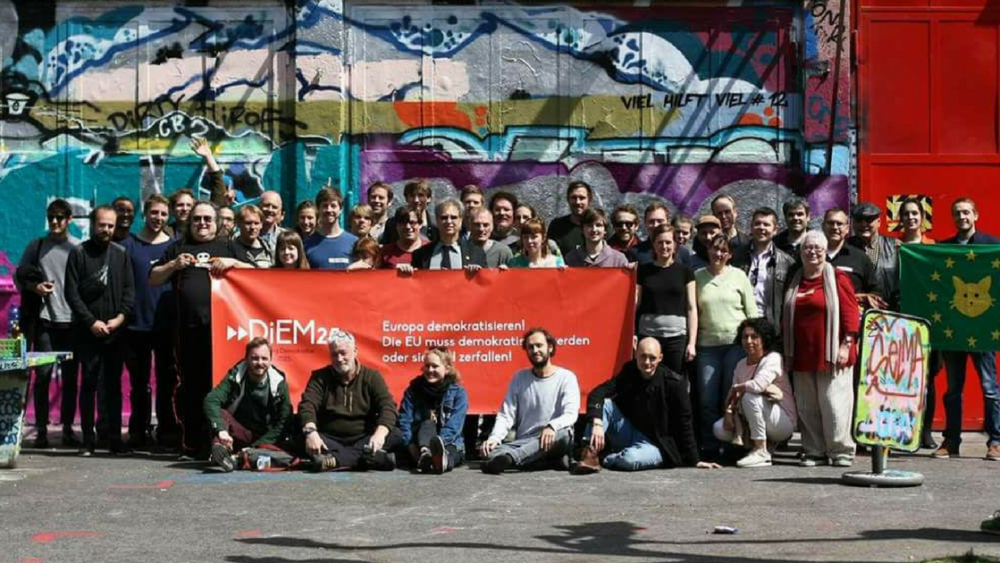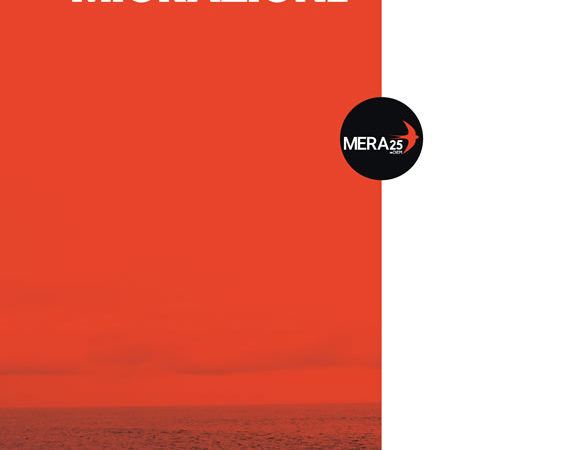Democratically refounding Europe, provoking a political and social renaissance on a continental scale: these are goals which will not be accomplished in a single day, nor will they be accomplished by the usual machinations of politicians.
Since 2016, DiEM25 has been working steadily to construct a viable Pan-European alternative.
This work began with the construction of a radically democratic transnational movement, which today boasts 70,000 members. It continued with the creation of a realistic agenda addressing economic, political, social, and ecological problems which was drafted by, and for, the European people and designed to restore faith in our ability to work towards a common goal. Finally, our efforts have resulted in an electoral platform and a framework to ensure that the 2019 European elections will not be the preserve of pro-austerity neoliberals and authoritarian sovereignists: European Spring.
The European Spring initiative is an answer to Europe’s need to evolve beyond the outdated, impotent, and backwards politics of the present EU and towards an ambitious, leftist alternative.
Until now, a viable political agenda of this kind has never been developed on a European scale: an agenda which is at once postcapitalist, ecological, feminist and based on sharing wealth, embracing multiculturalism, refusing blanket commercialisation, and using technology for the common good.
Our goal is to inspire hope for a changed future and to prove that creative problem-solving, intellectual courage, and endurance can overcome the challenges of working on a European scale.
The true source of the crisis which we find ourselves in today lies in how we have responded to the inevitable process of globalisation: the neoliberals influence it for their own ends, the nationalists and religious conservatives hold it up as an omen of decline, the people who it affects benefit only marginally at best, and the Left stays firmly entrenched within their mental and territorial borders.
Our agenda, embodied by the European Spring platform, is inherently transnational, created by Europeans, for Europeans and is based on the tenets of global political integration, decentralisation of democracy, social equality, and environmental sustainability.
No longer can we think nationally; we have had enough of fighting local battles against global powers where the only outcome can be heroic defeat and disillusionment. Instead, the organisations which have chosen to participate in European Spring are committed to pursuing a sustainable political strategy which will allow us to accomplish our long-term goals without sacrificing our ideals for short-term gains. Yes, we will participate in elections but while staying true to the principles that we have set out together with other Europeans in order to build something that is bigger, stronger, and more enduring than any of our respective countries are alone.
The European Union, and the peace which it has brought since the second half of the 20th century, must be made to evolve so that they may be preserved. Although today’s EU is inarguably governed by an illegitimate technocracy at the beck and call of lobbyists representing big business, and although the hold that these powers maintain over the lives of the European people has increasingly led to fractures, we reject the idea that political integration in Europe is responsible. As federalists, we maintain that it is a lack of integration, regulation, and harmonisation which has allowed the EU to be corrupted.
Now is the time. As fascism exploits this weakness, gaining ground throughout Europe, we must have the courage to defend Europe as a lawful and democratic space like no other. Moreover, we must state loudly and clearly that the disintegration of the EU, which many claim would restore national sovereignty, will have only one outcome: weaker economies, more poverty, and the intensification of the kind of racist identity politics which have historically led to war.
The sensationalism surrounding immigration is an example of the egoistic opportunism that allows right-wing populists to thrive and regain lost power, and to which our response must be an unconditional welcome in the name of solidarity.
DiEM25 and European Spring want to bring democracy back to the European institutions, reconciling them with the Europeans they have alienated, so that the people might finally be truly represented and united. This is an intolerable prospect for both the neoliberals, who would keep the citizens as far away from the decision-making process as possible, as well as for the nationalists, who wish to keep Europeans sharply divided.
The movements which make up European Spring (which, apart from DiEM25, are largely national) have courageously chosen to view the world through a much wider lens, which could damage their electoral bases at home. However, we believe that it is precisely the clarity, the coherence, and the radicality of this pan-European movement which ensures its credibility and appeal.
The French singer Jacques Brel once wrote:
“There are two kinds of time: the time of waiting, and the time of hope.”
The time of waiting is over: the construction of a European force which is capable of speaking and acting on the same scale as the Commission is taking shape, slowly but inevitably. European Spring is now acting as a catalyst, enabling the Europeanist Left in Germany, Portugal, Italy, France, Poland, Belgium, Denmark, and Sweden to move forward together. The time of hope is now.
We’re advancing step by step: first by spreading our ideas. Since autumn, European Spring has traveled from Naples to Copenhagen, Lisbon to Paris, and most recently to Warsaw, bringing its members together, welcoming newcomers every step of the way, and continuing to develop a common manifesto through transparent, public meetings.
Secondly, through publication and exchange. In the autumn of 2018, on European Spring’s one-year anniversary, the final draft of our common manifesto, the European New Deal, will be released and accessible to all. It is on the back of this achievement, and with the organisations, movements, associations and individuals who will have joined European Spring, that we will set off on a campaign across the European Union, which we hold so dear.
In the overarching agenda of European Spring, elections are exactly that: just a spring, just the beginning of a transformational process. The long-term quality of our goals is evident both in the way we’ve constructed our agenda and in our multi-phase plan for the future.
We acknowledge that cultural differences can make crafting a truly European agenda difficult, but as we are unwilling to accept either war or perpetual social alienation as alternatives, we are confident that the reasonable and radical nature of our agenda can and must allow it to prevail. This is why the members of European Spring consult with one another constantly in matters regarding local commitments, such as forming coalitions or taking stances on local issues. By working in this way, we are able to develop common methods across disparate histories and cultures.
It is our desire, as members of DiEM25 and European Spring, to not only spread our hope for a renewed Europe but also to create a political vehicle capable of realising that hope.
Frédéric Kalfon is a membre of the French coordination of DiEM25
Volete essere informati delle azioni di DiEM25? Registratevi qui!




